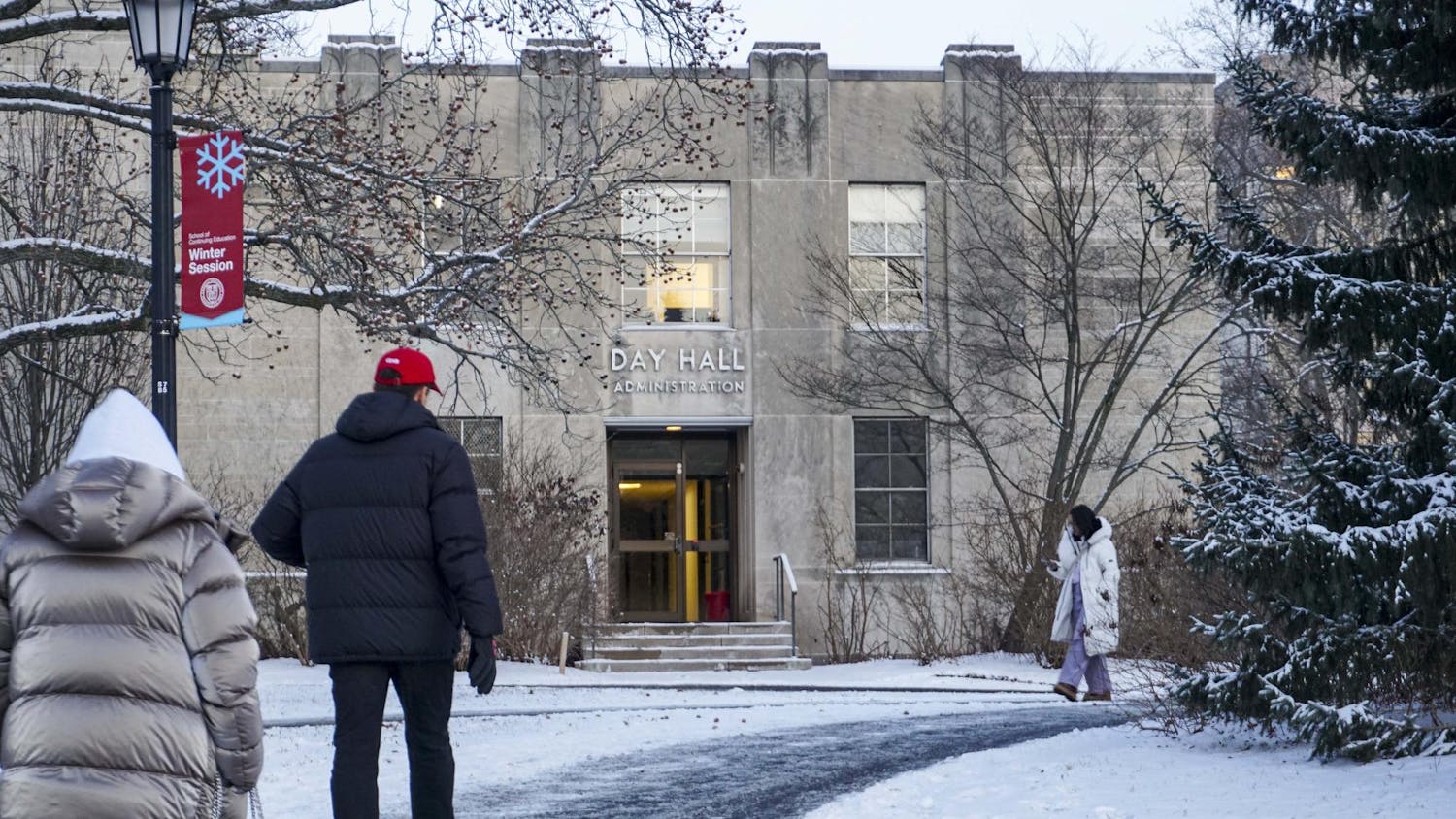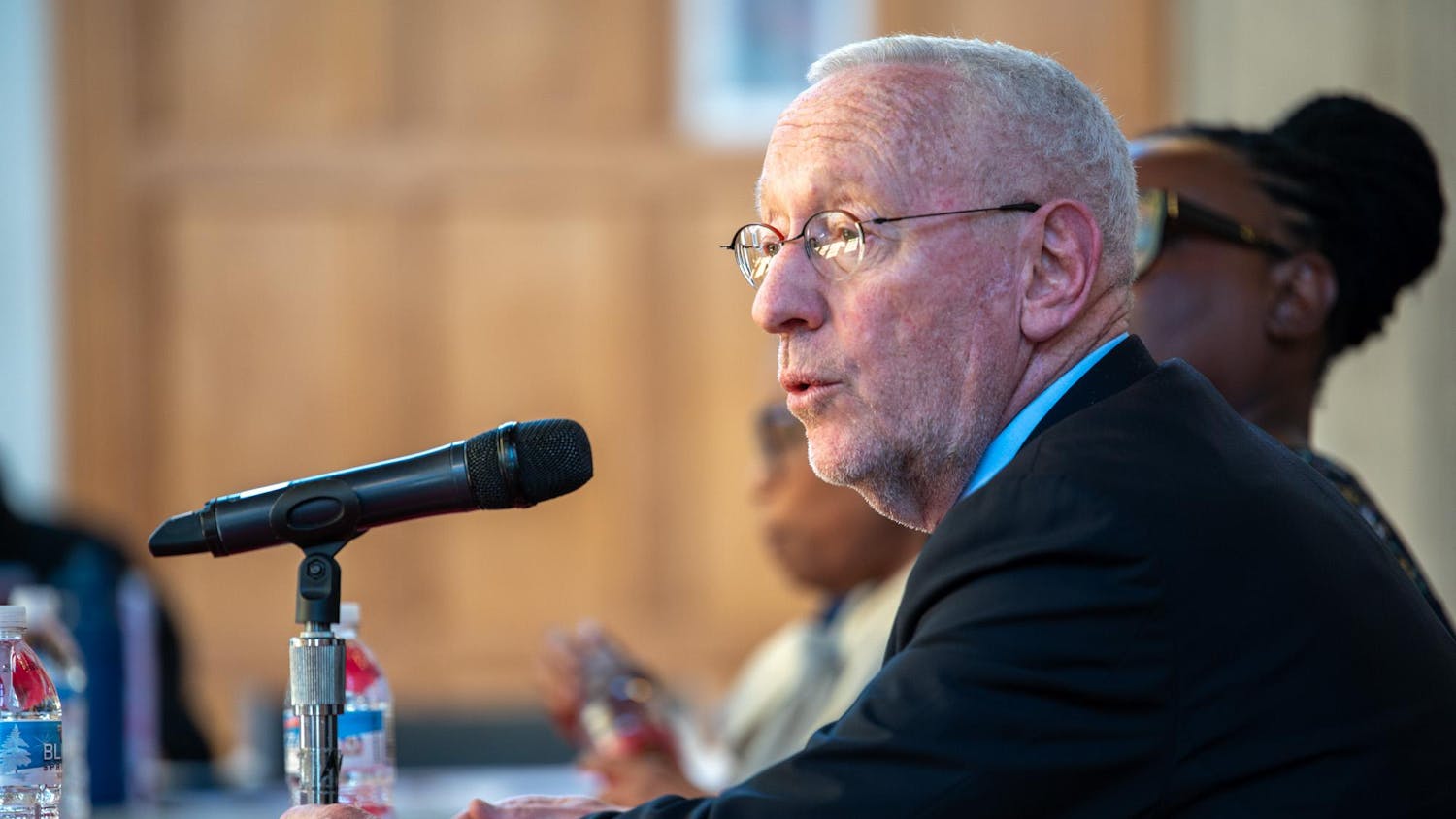A Cornell research team has developed a watch-like device meant to help students calm down during stressful scenarios.
Jean Costa grad created EmotionCheck, which was recently featured on the Daily Planet, a Discovery Channel program, alongside a team of researchers at the People-Aware Computing Lab.
Users experience gentle vibrations on their wrist when their heart rate increases. This tapping, which is slightly slower than the user’s heart-rate, is shown to help the user regulate their emotions and calm down, according to Costa.
“When you feel the vibrations and you're not really thinking about it, you have the impression that you're actually feeling your own pulse,” Costa said.
Costa wanted to help people overcome their anxiety without feeling distracted by technological intervention.
“People can focus on their task at hand but, in the back of their mind, the technology can still act on them,” he said.
Prof. Tanzeem Choudhury, information science, who leads the People-Aware Computing Lab, said that part of what makes EmotionCheck unique is that it requires very little of the user.
“When someone is struggling with mental illness often times they are not proactive,” Choudhury said. “We see EmotionCheck as a way to deliver early-on intervention that is … keeping tabs on a person in a way that just blends into their everyday life, without requiring them to take a lot of initiative and effort.”
This method can be more effective than devices that encourage users to perform breathing exercises, according to Costa.
“If a college student is in the middle of a presentation, he can’t really stop in the middle and take his phone out of the pocket and do a deep breathing exercise,” Costa said.
While the device was not initially aimed at college students, Costa said that universities, especially Cornell, have been a great place to study the intersection of mobile technology and mental health intervention.
“Students and college students in particular have just left home and experience a lot of changes and stress, but they are also avid users of technology," Choudhury said. “They are a receptive audience to use technology and help understand problems in mental health and to deliver intervention.”
Although EmotionCheck has only been researched in a lab, Costa is now trying to incorporate the same technology into a smartwatch app. The project, which Costa plans to start in the next month, will test if the technology works in the real world.
The lab team will conduct a study in which students will try the technology with Apple Watch to determine whether the program functions in classes, exams or at home, according to Costa.
“In this way, we can better understand the effectiveness of technologies like EmotionCheck in our daily lives,” he said.
In the future, Costa said the device might be able to predict times or places where individuals will feel anxious and could calm them down before they realize that they are stressed.
Costa also noted that, while the smartwatch will be able to collect information that can help users, data collection isn’t the goal of the project.
“My goal is to focus on intervention,” he said. “The sensing part is important, but if you can’t intervene to directly help the person, it doesn’t solve the problem.”

Cornell Researchers Create Mental Health Personal Aid
Reading time: about 3 minutes
Read More










